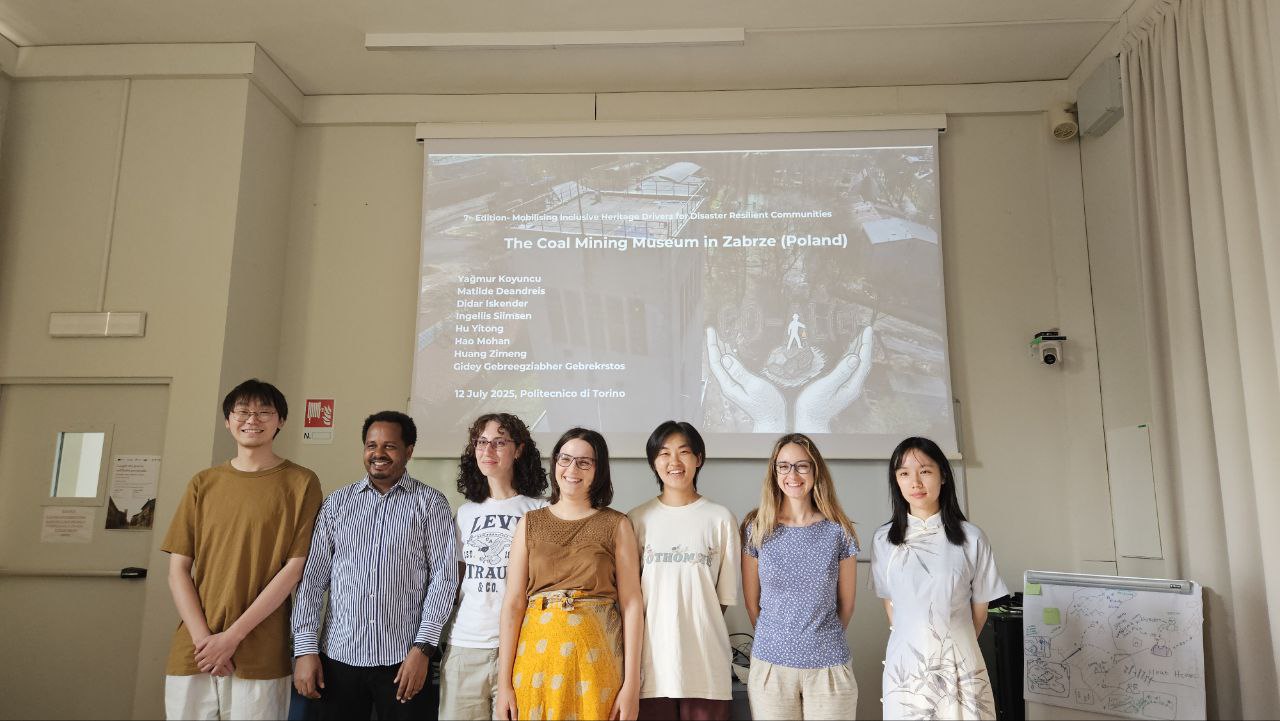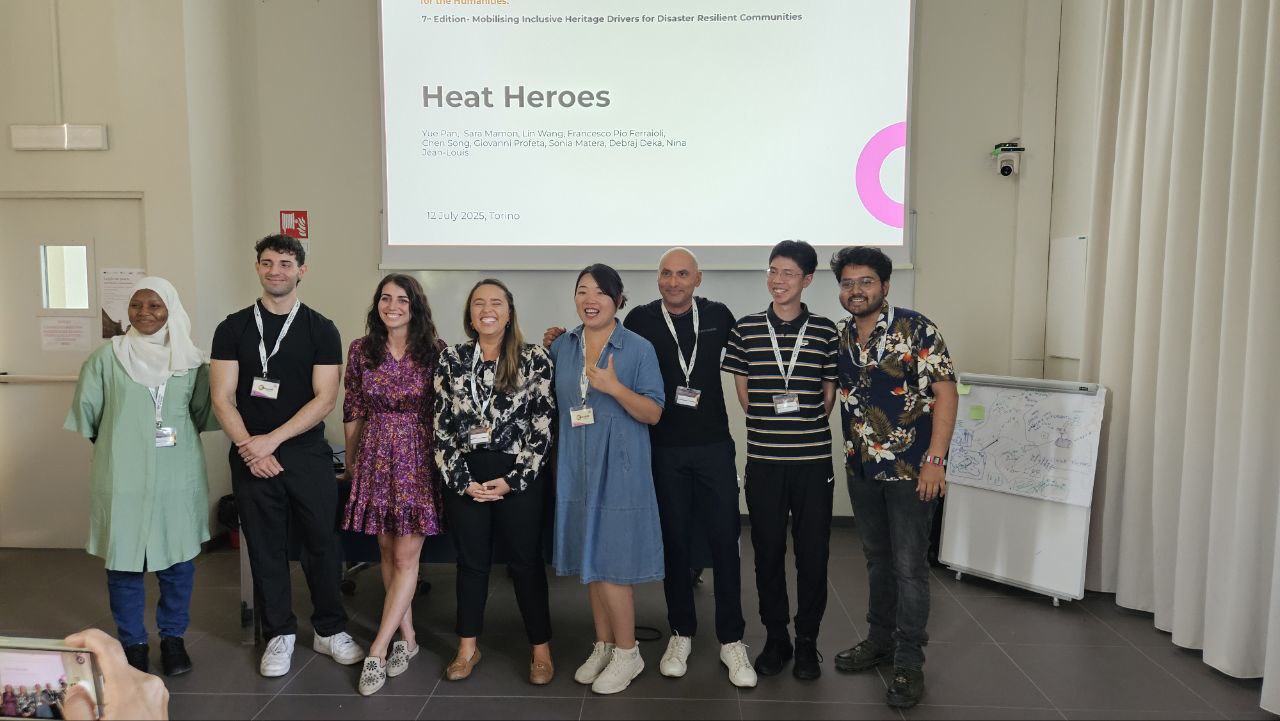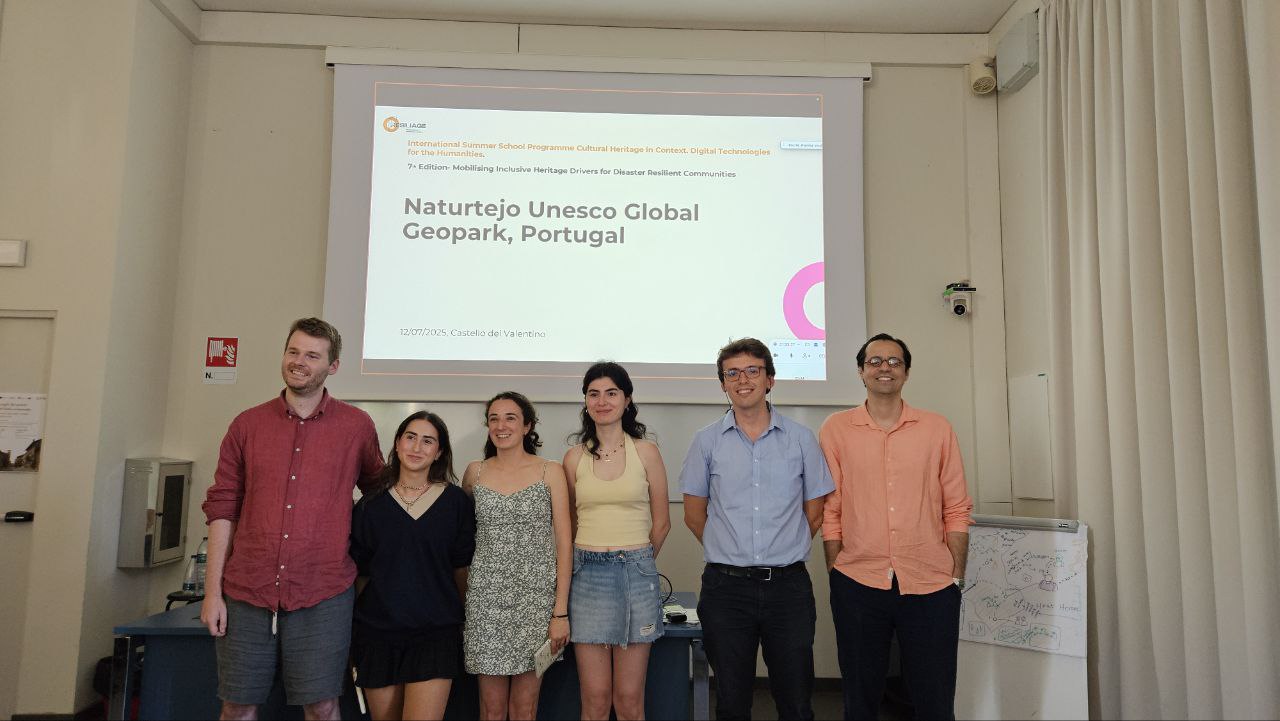Mobilising Heritage, Empowering Communities – Highlights from the 2025 RESILIAGE Summer School
The 2025 edition of the RESILIAGE Summer School, titled “Mobilising Inclusive Heritage Drivers for Disaster Resilient Communities”, has wrapped up with remarkable achievements and inspiring collaborations. Held from 5–12 July 2025 at the Castello del Valentino, UNESCO World Heritage Site in Turin, the Summer School was co-organised by Politecnico di Torino, UNESCO, and the UCLA Cotsen Institute of Archaeology as part of the Cultural Heritage in Context: Digital Technologies for the Humanities programme. This year’s edition was organised under the Horizon Europe project RESILIAGE, in collaboration with the SYNERGIES, PARATUS and LINK projects.
This immersive week brought together 24 participants from 15 countries. United by a common purpose, they explored how inclusive, heritage-based approaches—combined with emerging digital technologies—can empower communities, particularly vulnerable groups, to face climate-related and anthropic risks.
A week of hands-on learning and co-creation
The programme blended keynote lectures, practical workshops, and collaborative group work. Participants examined real-world case studies from European and non-European contexts, engaging directly with local community representatives. Through co-design and prototyping sessions, they developed innovative digital tools aimed at strengthening heritage-led strategies for disaster preparedness, risk mitigation, and social inclusion.
Special attention was given to bottom-up processes, inclusive methodologies, and the integration of local knowledge, from intangible traditions to contemporary challenges. Sessions covered topics such as participatory heritage mapping, gamification for resilience learning, and the ethical use of AI in cultural heritage contexts.
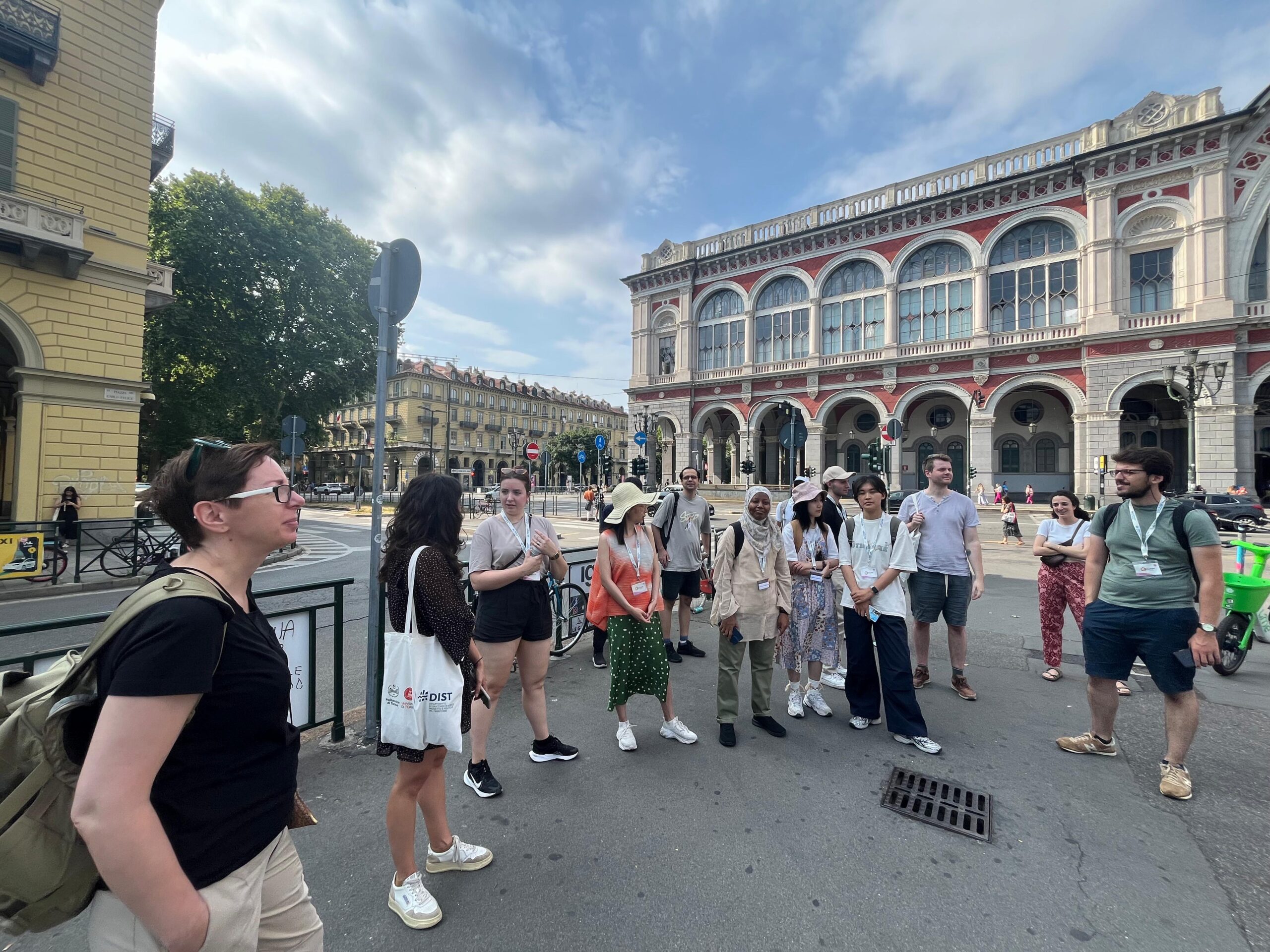
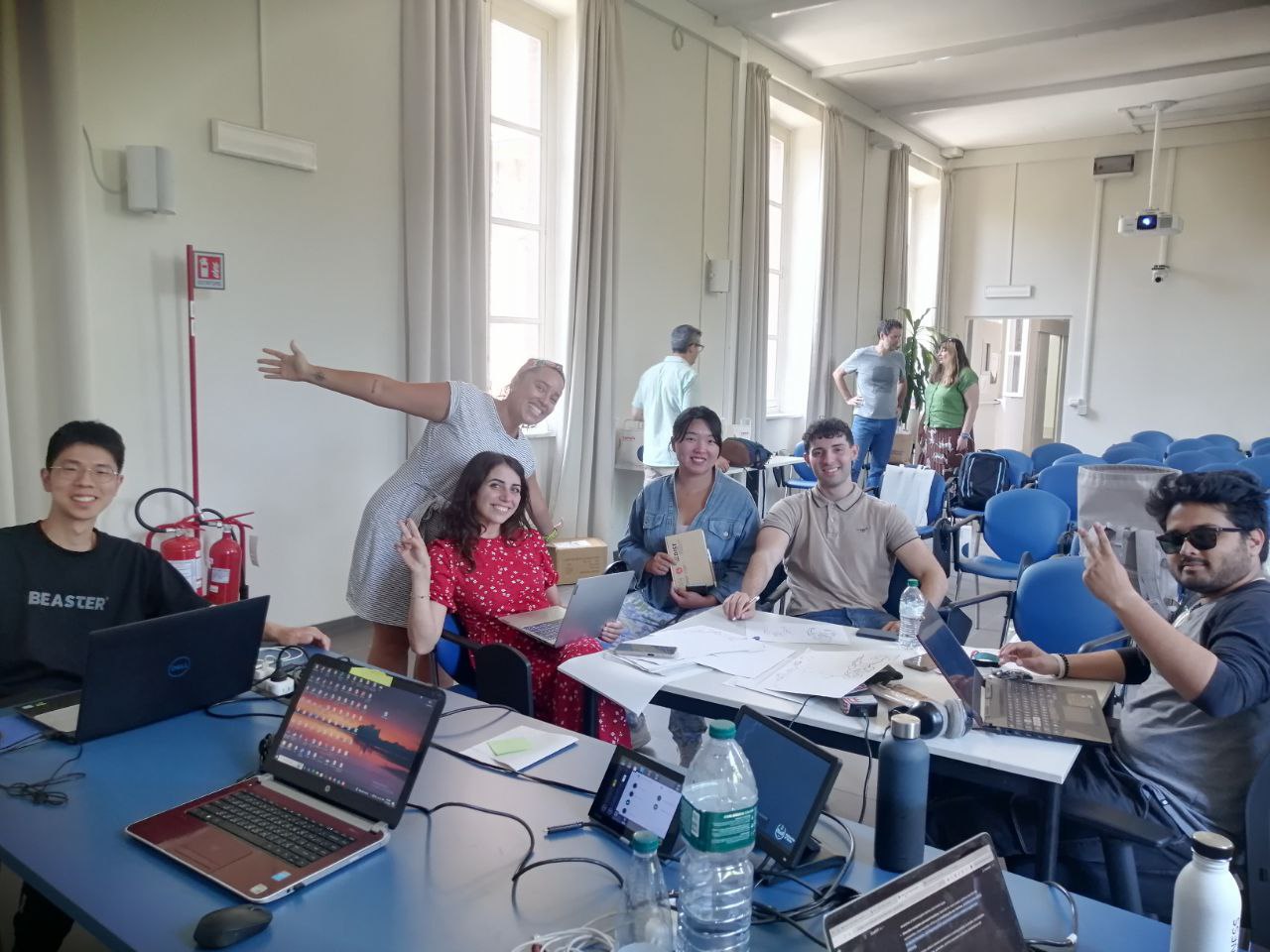
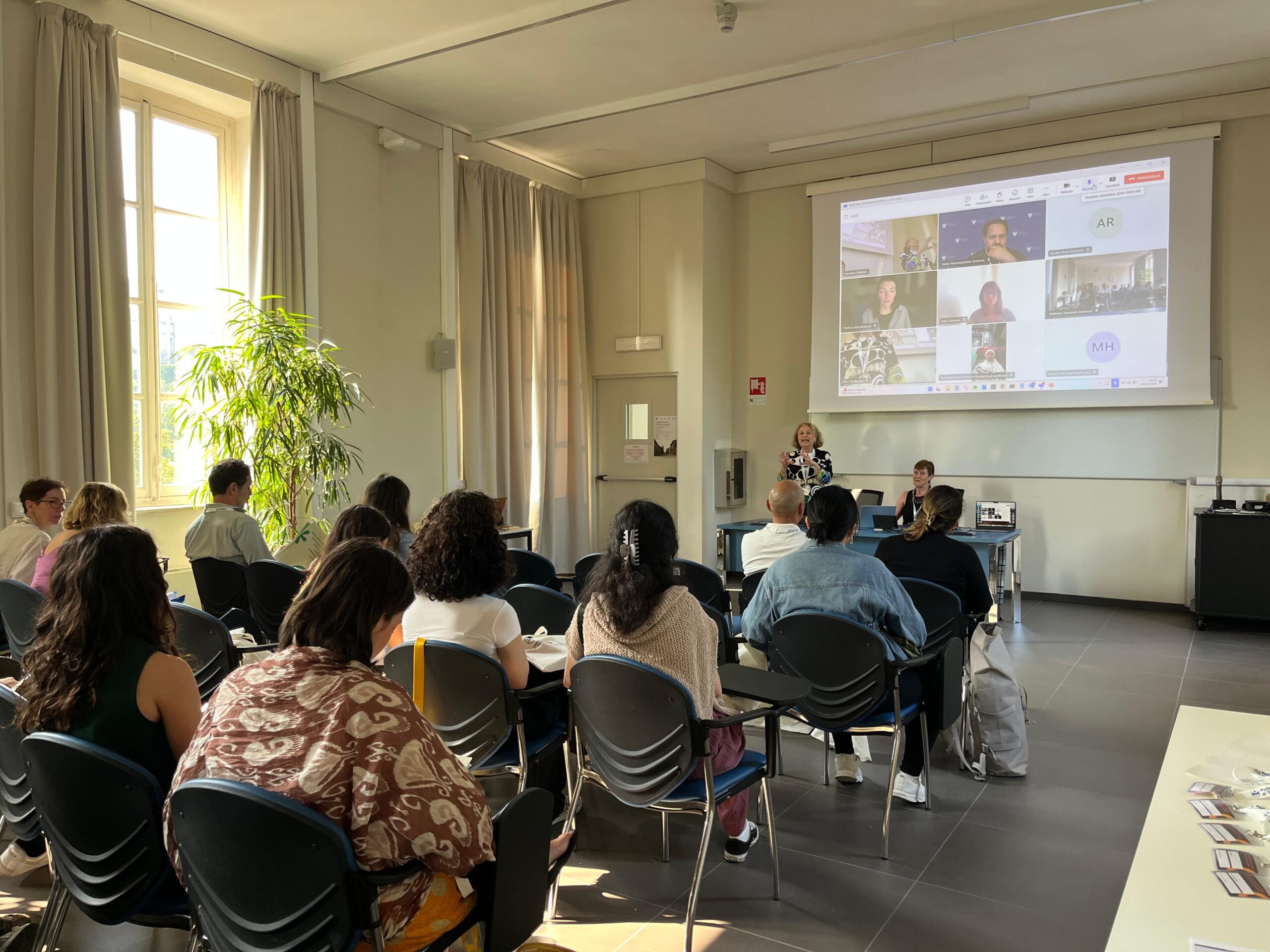
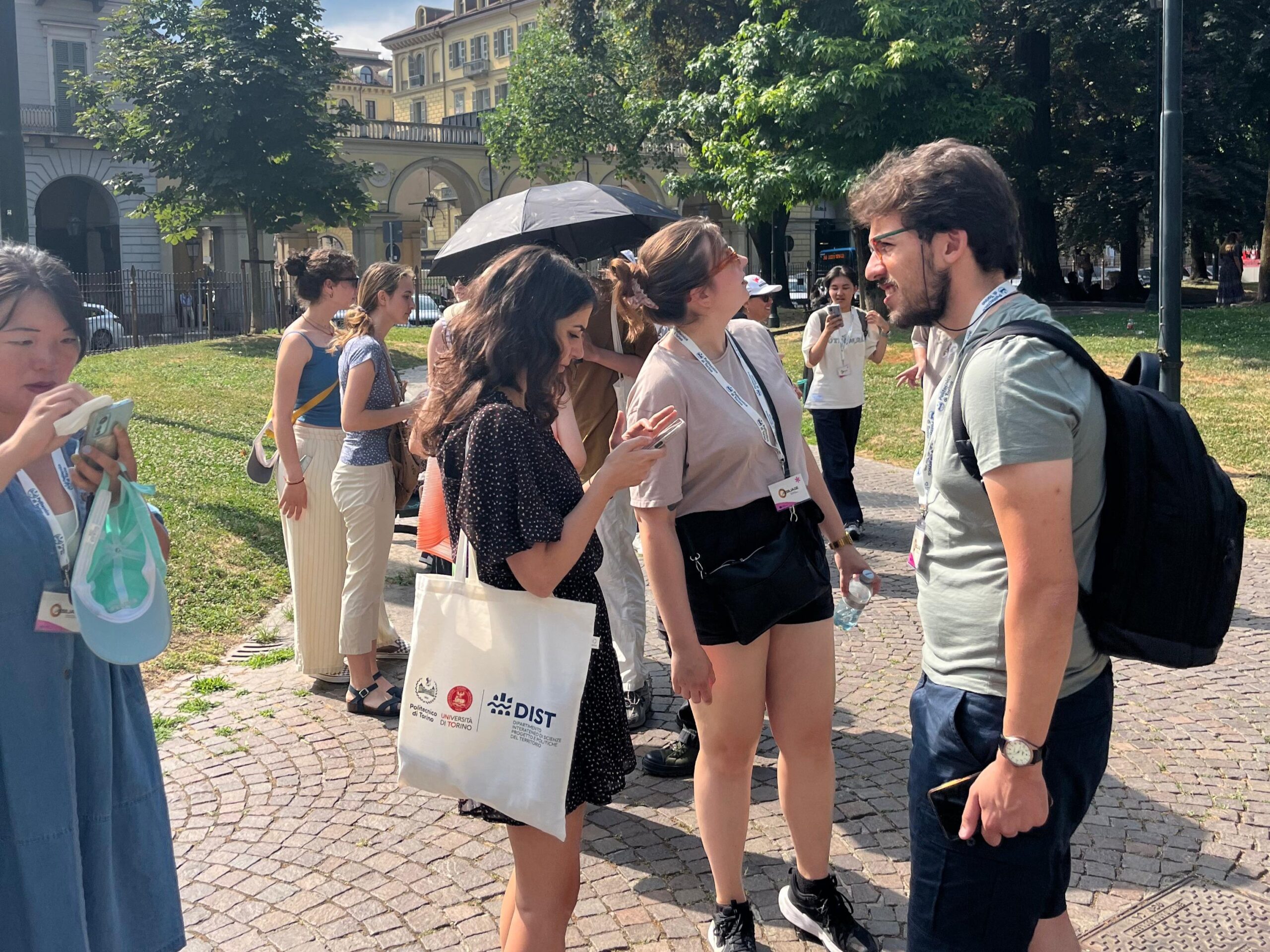
Projects born from the 2025 Summer School
Working in multidisciplinary teams, participants created impactful initiatives such as:
-
CO-AL(L): A gamified learning experience to reconnect youth with post-industrial heritage in Zabrze, Poland, blending VR technology, cycling tours, and intergenerational storytelling.
-
Heat Heroes: An educational game in Karşıyaka, Turkey, that transforms traditional knowledge into playful learning for children, helping them respond to extreme heat events.
-
Convivioteca: A participatory mapping and inclusion platform for the Naturtejo UNESCO Global Geopark in Portugal, fostering cultural exchange between elderly residents and newcomers.
These projects showcased how heritage and technology can be combined to address urgent societal and environmental challenges, while fostering identity, resilience, and solidarity. For more information on the projects, stay tuned to our upcoming booklet with highlights from the 2025 edition of the Summer School.
